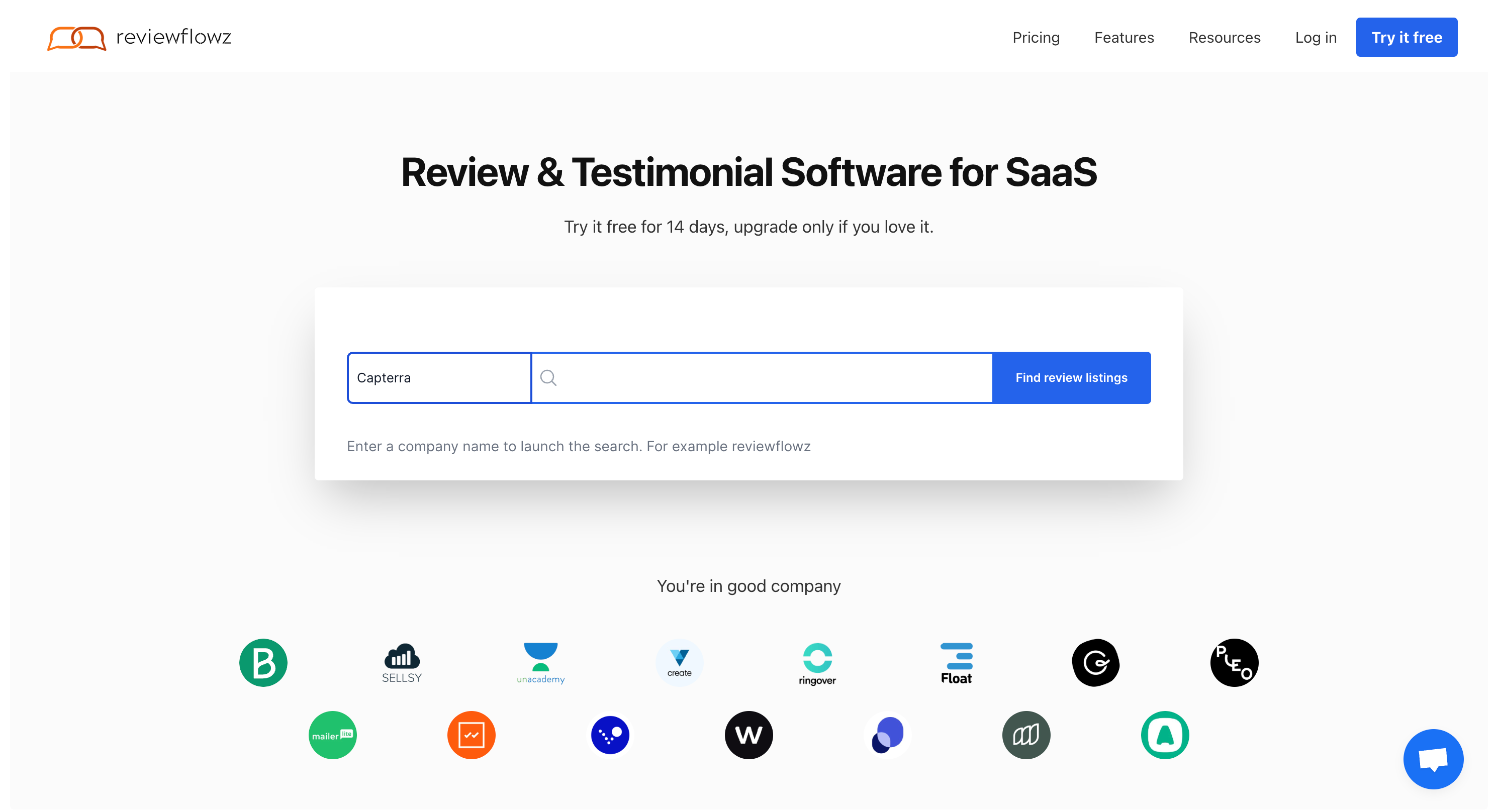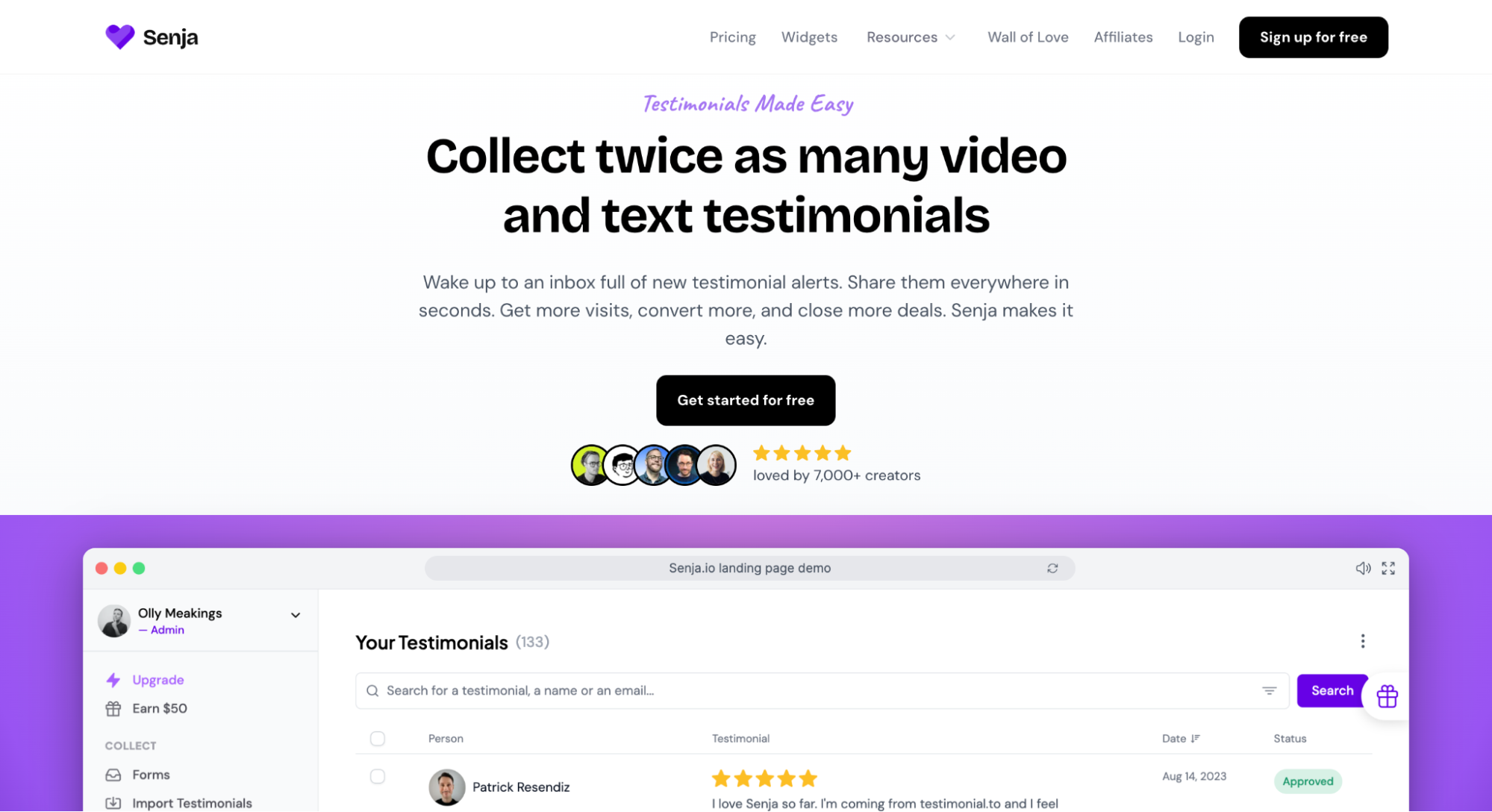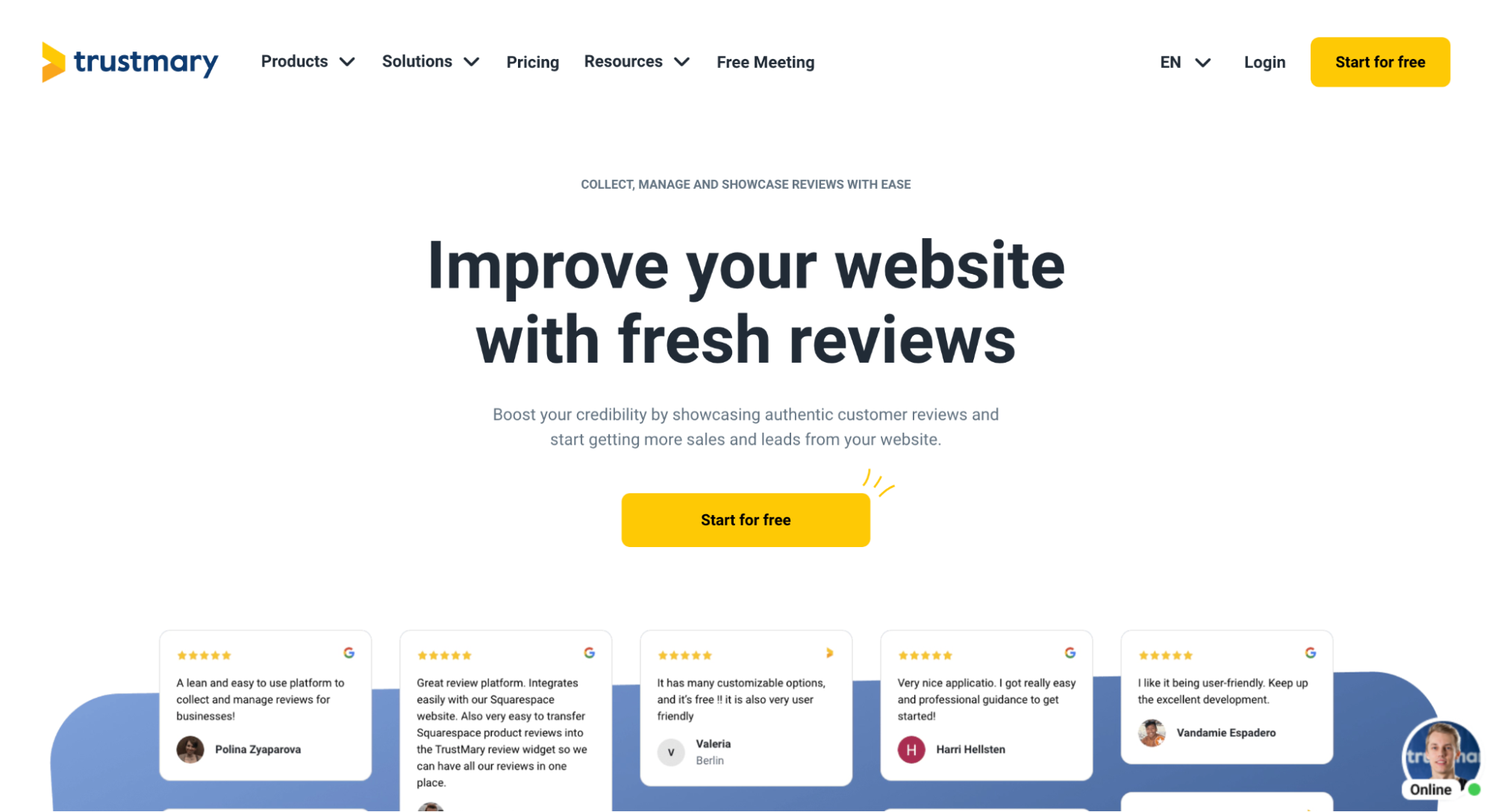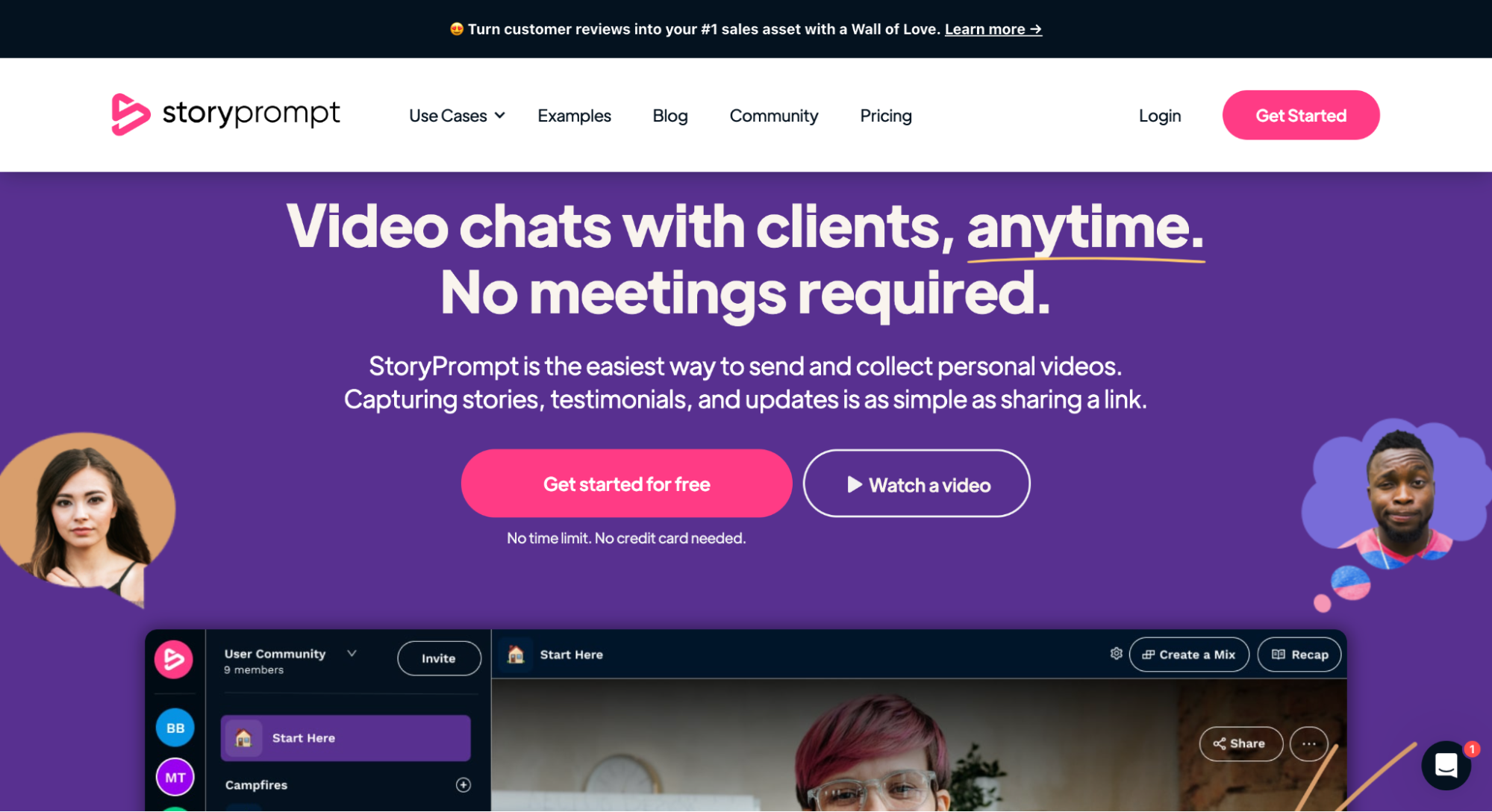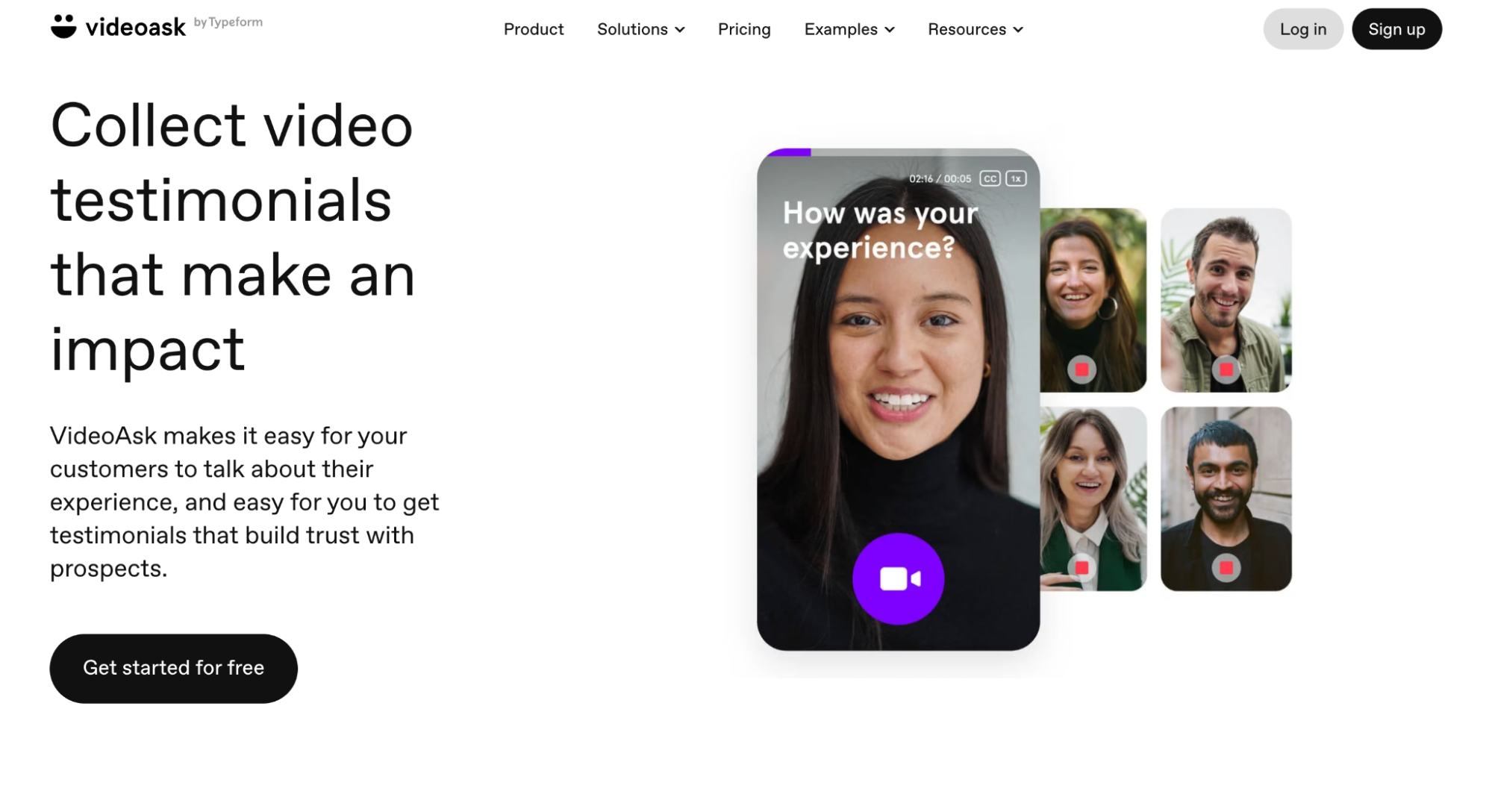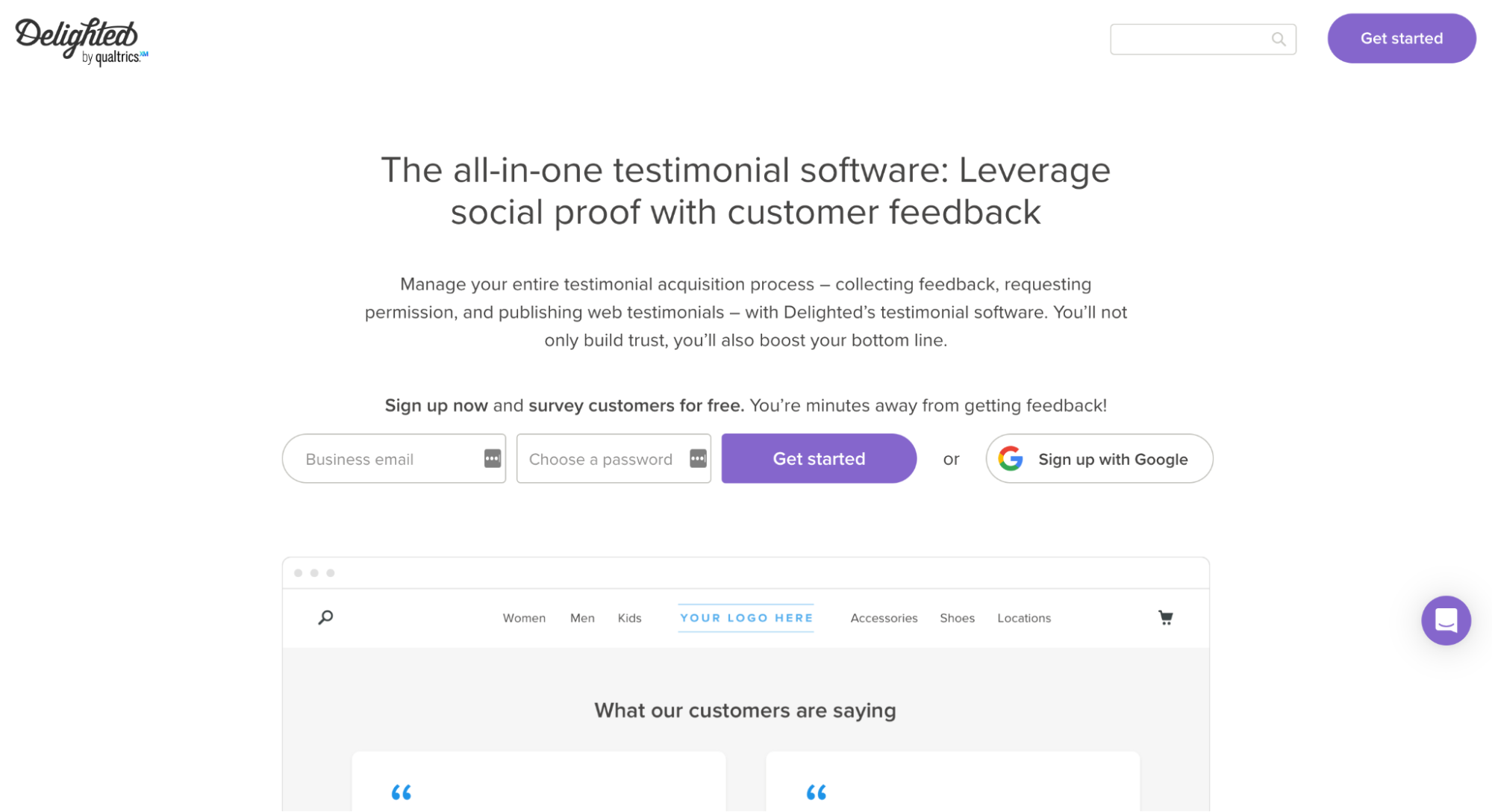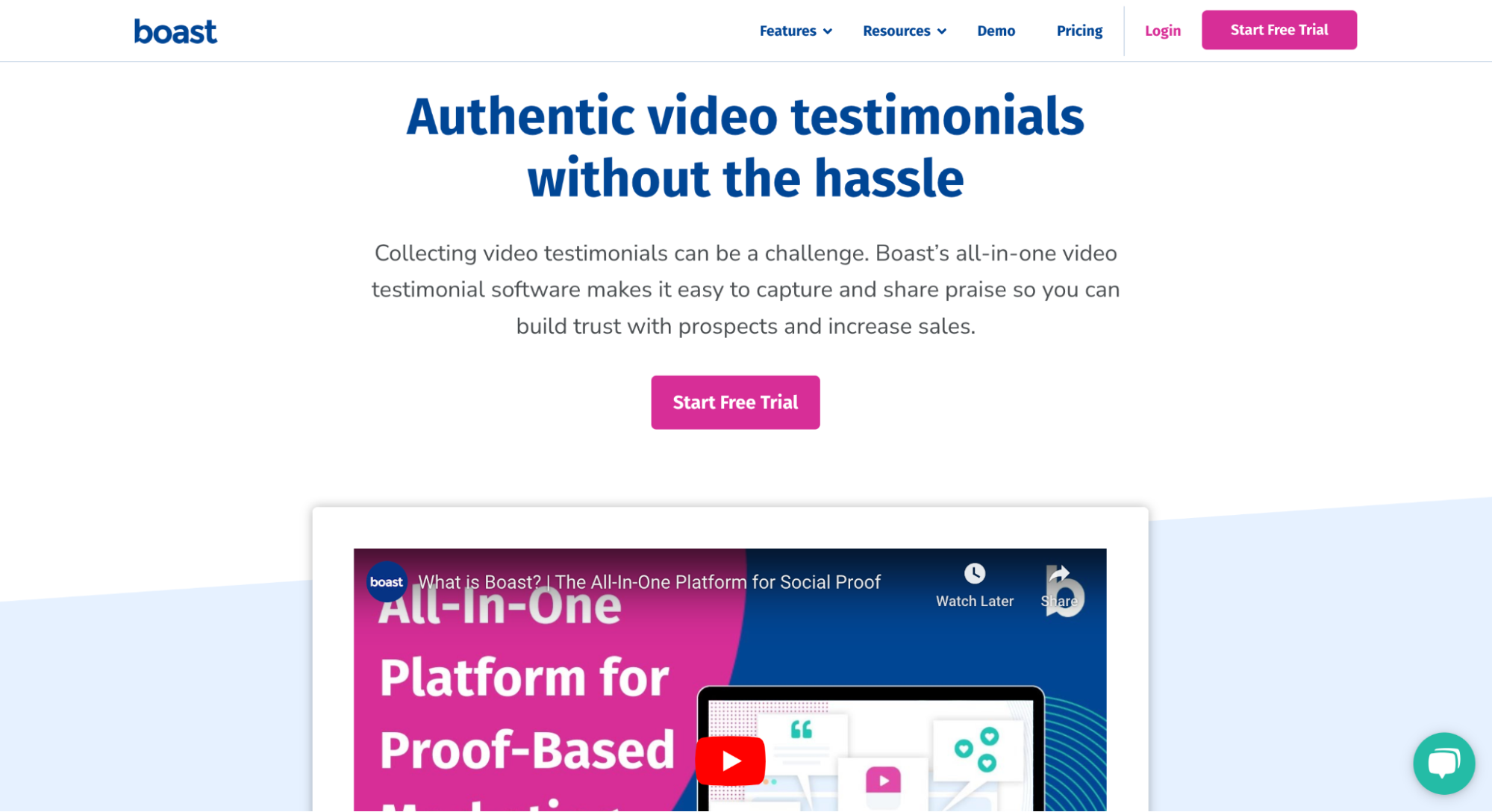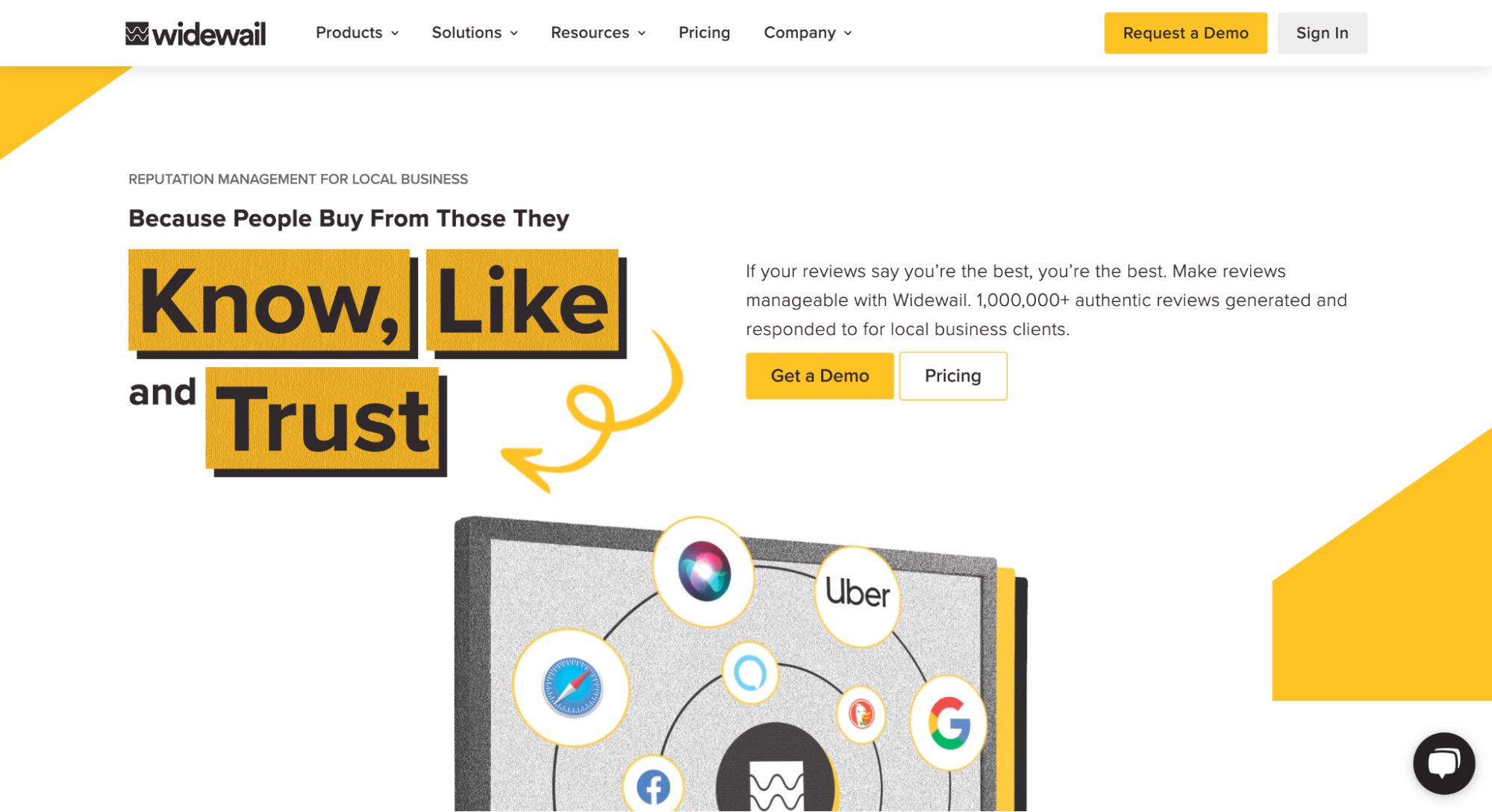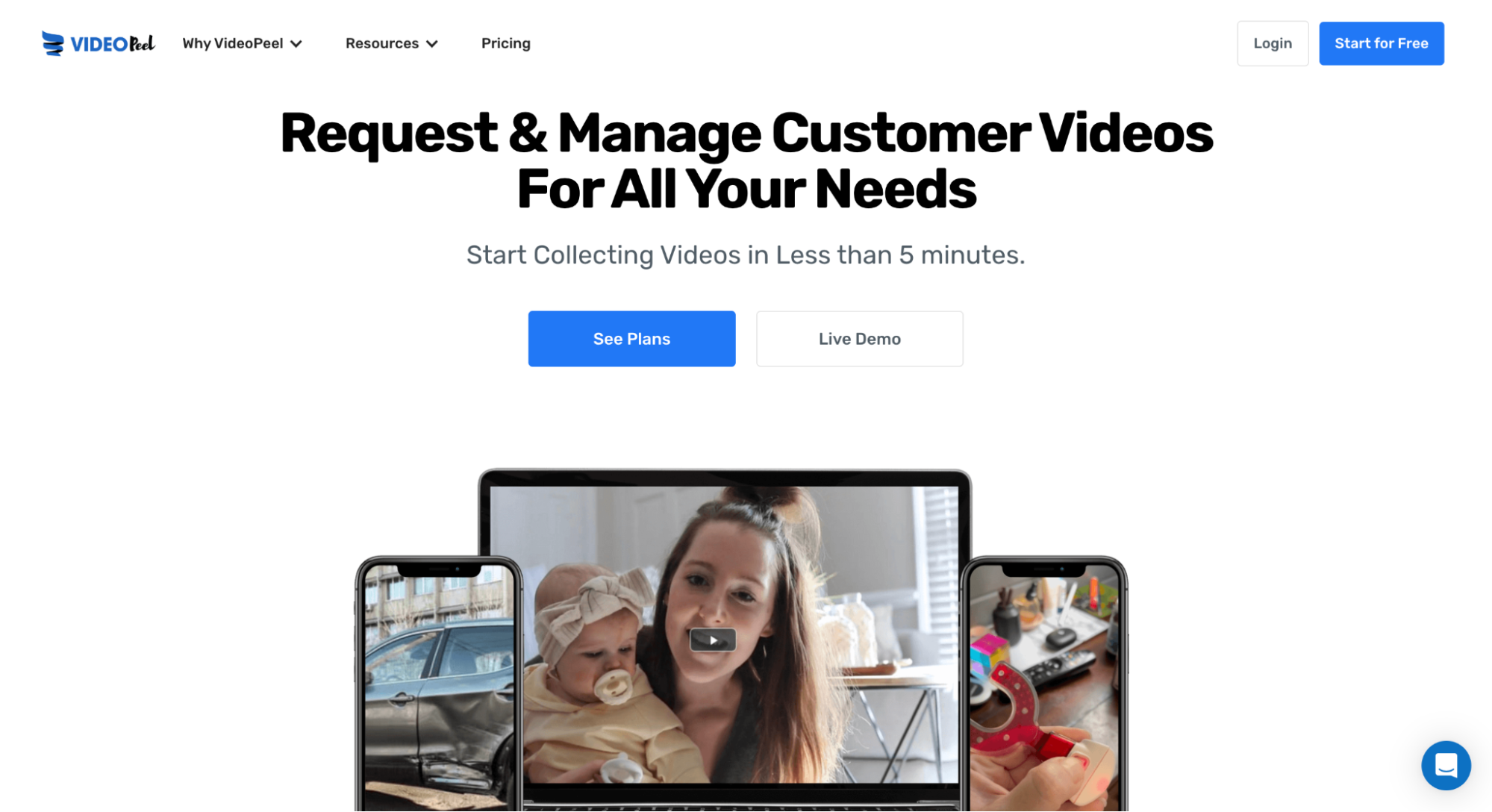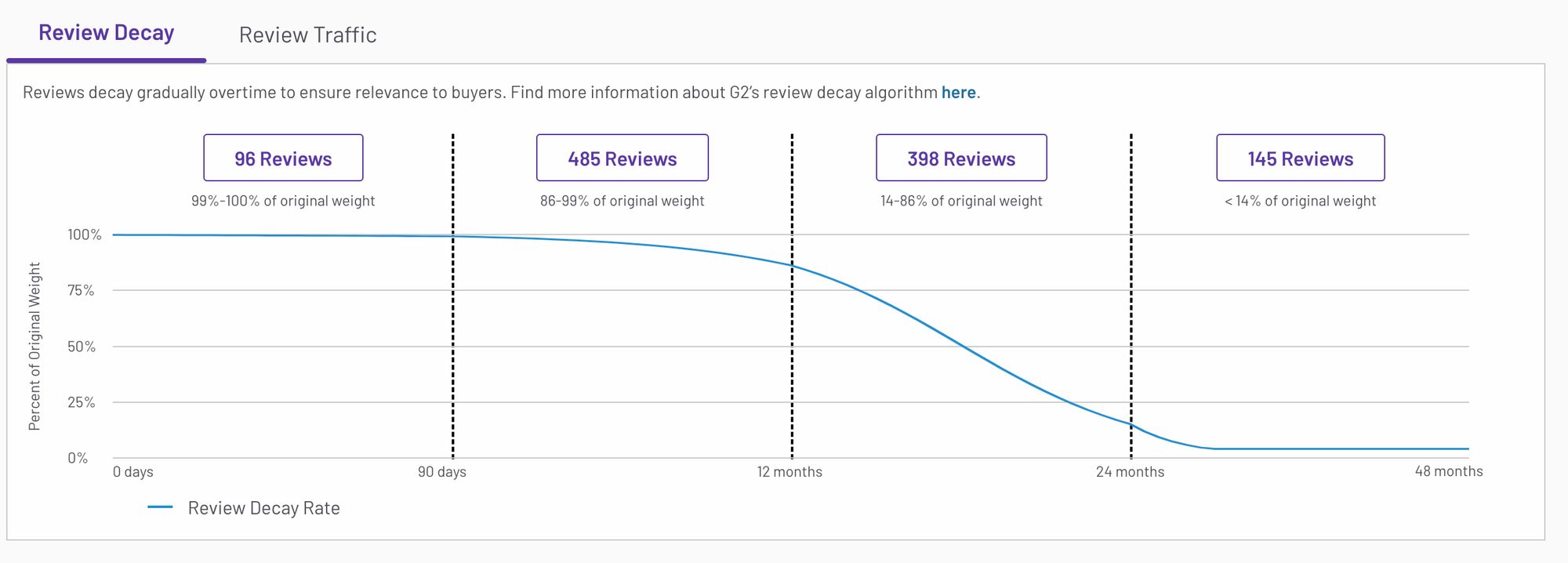Top 10 Testimonial Collection Software for SaaS in 2024
Very few marketing strategies are as powerful as testimonials. People want evidence that your product or service delivers on its promises.
This is particularly important in B2B.
According to a G2 survey, 92.4% of B2B customers are more likely to purchase a product after reading a trusted review.
While testimonials are essential, manually collecting them is tedious. It involves creating ways to ask customers, creating forms to collect data, and designing and showcasing positive feedback on your website and marketing materials.
You may be wondering how to automate and streamline the process of collecting, formatting, and sharing testimonials.
That’s why we’ve compiled a list of the best testimonial collection apps to help you and your team save significant resources while increasing the volume of quality testimonials.
Before we dive into the software solutions in the B2B space, it’s important to be aware of some nuanced challenges when collecting testimonials and what to look for when choosing the best solution for your business.
Challenges for software businesses in testimonial collection
- Complexity: SaaS products often have multiple features, integrations, and platforms, which, from a technological standpoint, makes gathering valuable feedback from users more difficult.
- Limited customer base: Compared to B2C companies, SaaS businesses have fewer customers, particularly for high Average Contract Value (ACV) products. This smaller customer base makes obtaining substantial testimonials more challenging.
- Difficulty in public feedback: Gathering public testimonials from SaaS customers can be more complex than businesses targeting consumers. SaaS products often cater to niche markets, making finding customers willing to provide public reviews harder.
What to look for when choosing testimonial collection software
- Flexibility: Seek software that can gather testimonials from multiple sources, such as social media platforms, emails, or review websites. The software should offer customization options and be adaptable to your specific requirements.
- Integrations: You want a tool that integrates with your current systems, such as CRM or marketing automation. This integration will allow for smooth data flow and automate collecting testimonials.
- Organizational features: Look for software that provides practical tools for organizing and searching testimonials. This should include tagging, categorizing, and filtering options to efficiently manage and showcase testimonials.
- Control and ownership: Select a tool that allows you to maintain control and ownership of your testimonials. You should be able to determine where and how testimonials are displayed without being restricted to a specific platform or pricing model.
- Review distribution: Consider using software that distributes testimonials across different review platforms based on your business goals. This flexibility allows you to strategically allocate reviews to platforms that will provide the highest value to your business. For example, maintain an average rating of 4.5 on platforms X, Y, Z, get a minimum of 20 5-star reviews on platforms A and B, and get as many reviews as you can on platform XYZ.
- Analytics and reporting: Look for software that provides robust analytics and reporting capabilities. This will help you gather insights from testimonials, measure their impact, and make data-driven decisions for your business.
- Ease of use: Prioritize user-friendly and intuitive options. A straightforward and user-friendly interface will increase efficiencies for your team.
#1 Reviewflowz
Testimonial and review software for SaaS companies
Reviewflowz is an effective testimonial management tool that aggregates all your reviews, providing unparalleled control over your data. You can search, export, and even experiment with your testimonials using ChatGPT — because your data is yours to use as you see fit.
With Reviewflowz, you can create review generation campaigns through emails or links that guide customers to a testimonial collection form. Based on your score or criteria, customers will be directed to a landing page to leave a review on platforms such as G2, Gartner Peer Insights, Capterra, Trustradius, and more.
For example, let’s say you’re sending an NPS email to three contacts. One contact uses your Salesforce integration, another is an enterprise client, and the third is an SMB client.
- The first contact should be directed to the AppExchange for a review. Since you have a limited number of Salesforce integration users, their reviews are precious to you. The more reviews, the better.
- The second contact should be directed to Gartner Peer Insights. Since you’re struggling to grow there, you need high-quality reviews with plenty of context.
- The last contact should be directed to G2. You need a constant flow of numerous reviews to rank higher on G2’s category page, as your investors are constantly asking your CEO when you’ll reach the top three in your category on G2.
This concept is known as “review balancing,” a strategic approach to sending customers to specific platforms based on your business goals and dynamics. No other tool on the market handles this, except for reviewflowz.
While reviewflowz delivers an effective testimonial collection process, it doesn’t offer video testimonials.
Reviewflowz has a 14-day free trial, which allows you to track up to 10 listings and check out most of the features.
Starting at $50/month, Premium plans offer up to three testimonial widgets, daily or weekly reports, webhooks, API and CSV exports, and multiple channels, allowing you to send new testimonials or reports to different services.
#2 Testimonial.to
Video and text testimonials for indie hackers and course creators
Testimonial.to helps you to easily collect and display testimonials with one solution. It’s known for its landing page feature, the Wall of Love, which shares your text and video testimonials in a grid layout for prospects to see.
You can also include other forms of social proof on your Wall of Love, including reviews from external websites like Twitter, emails, and other review platforms.
But there’s a catch. You need to download the Chrome extension and scrape third-party reviews one by one — which, at this point, you may as well copy and paste.
Testimonial.to offers a range of plans including a free plan with limited features. The Starter plan ($25/month) removes branding from the widgets but is still limited to 2 video testimonials, while the Premium plan ($60/month) provides more workspaces, unlimited video testimonials, and Zapier integrations. The Ultimate plan ($80/month) offers video metric insights and a HubSpot CRM integration.
#3 Senja
An all-in-one testimonial management platform for indie creators and influencers
Senja is software designed to collect and display testimonials. It simplifies the process by offering an augmented form app that allows you to create customizable forms for gathering testimonials. These forms can be embedded on websites or shared directly with customers. Additionally, Senja provides a widget feature to showcase testimonials on your website, creating a Wall of Love.
While Senja is capable of gathering testimonials from various sources, it does have limitations when it comes to the number of reviews available for download. However, for businesses with lower review volumes or those seeking a straightforward testimonial display solution, Senja can be a suitable option.
For pricing, you can get started on the free plan, which gives you up to 15 text and video testimonials and one collection form. The starter plan ($19/month) provides unlimited text and video testimonials and custom branding options. The Pro plan ($39/month and the Agency plan ($99/month) provide more scale with more seats, collections forms, Zapier integrations, and rich snippets.
#4 Trustmary
Comprehensive testimonial collection solution for mom & pop’s shops
Trustmary is a comprehensive testimonial collection and management platform offering a range of capabilities. Trustmary’s testimonial collection campaigns are a standout feature — where you can create rule-based automations to curate reviews from different websites.
Like many tools on this list, Trustmary enables you to create a widget in a Wall of Love showcasing your testimonials from different sources. One drawback of Trustmary is the confusing and expensive pricing model.
Trustmary has two products, Trustmary Display and Trustmary Collect, each with its own pricing plans. Trustmary Collect offers a free plan limited to five responses. The following tiers involve a Starter plan ($29/month) for up to 25 responses, a Business plan ($70/month) for up to 100 monthly responses, and the Scale plan ($189/month) for up to 500 monthly responses. The pricing options are similar for Trustmary Display, with the cost increasing depending on how many monthly views your widget receives.
#5 StoryPrompt
Engaging testimonial creation through storytelling
With StoryPrompt, you can prompt customers to share their experiences in a narrative format, adding a personal touch to your testimonials. An example of this feature is the Story Crafting Wizard, which allows you to guide customers through a structured process to create authentic video testimonials.
Additionally, the StoryPrompt offers seamless integration with various channels, making it easy to collect and share testimonials across websites and social media.
However, some users have noted that the language used in product features is initially confusing and will take some time to adjust.
Pricing starts at the free tier, with up to 25 video responses and watermarked media. The Starter plan ($49/month) provides up to 200 unwatermarked video responses. The Pro plan ($99/month) and the Premium plan ($199/month) offer more video responses, AI summaries, payment collection, and white labeling for agencies.
#6 VideoAsk
Video Testimonial collection through interactive conversations
VideoAsk allows you to create customizable video paths, guiding customers through a tailored journey to gather specific information. This feature ensures a structured and impactful testimonial collection process.
Additionally, you can integrate VideoAsk across various channels, including websites, email, and social media, providing convenience in reaching customers on their preferred platforms.
Like StoryPrompt, VideoAsk facilitates one-on-one video conversations, encouraging customers to share detailed testimonials more intimately and authentically.
The use cases for VideoAsk include sales, marketing, and recruitment. This means the testimonial feature is a little unfocused. For example, VideoAsk doesn’t provide an embeddable testimonial widget like many other tools on this list.
VideoAsk offers a free plan with 20 minutes of video processing each month with VideoAsk branding. The Grow plan ($30/month) has 100 mins of video, partially VideoAsk branded. The Brand plan ($50/month) offers 200m mins of video processing with custom branding and an AI chatbot.
#7 Delighted
NPS and customer feedback collection software
Delighted is a simple platform that easily captures valuable testimonials through customer surveys and feedback.
The strength of Delighted lies in its extensive range of survey templates, saving you time when identifying potential advocates willing to provide testimonials. For instance, you can run an NPS campaign using Delighted’s NPS survey, then follow up with your promotors for a testimonial.
For pricing, Delightful offers a Free Starter plan, including one user account and up to 50 monthly responses. Delightful paid plans range from $17/month to $449/month (billed annually). The main variables are the number of responses, users, and integrations.
#8 Boast
Dynamic video testimonials
Boast helps businesses establish credibility online through video testimonials. You can create custom surveys and sequences to automate video testimonial collection.
Once you’ve gathered your videos, you can make simple edits to them within the Boast app. When you’re ready to share your testimonials, you can use a dynamic widget, landing page, or Zapier to send your testimonials to external platforms.
With a rich feature set, Boat comes with a premium price tag. Boast offers a 14-day trial but no free plan. The plans are $59/month, $119/month, or $249/month, with the variables being the video quality, number of responses, number of forms, and sequences.
#9 Widewail
Full-service reputation management
Widewail goes beyond mere testimonial collection, offering a robust solution for effective online reputation management.
Triggered by any event in your CRM, Widewail sends requests via SMS, guiding customers from request to video review — right from their phone or computer. Within the automation, each video includes a signed release form, ensuring you have approval to use the content in marketing.
Widewail is a full-service online reputation management platform, and as expected, it’s on this list’s premium end of solutions. Widewail doesn’t offer upfront pricing — you need to request a quote.
#10 VideoPeel
Remote video capturing
VideoPeel is a remote video-capturing platform for video messages, surveys, and testimonials. Like other video testimonial tools, VideoPeel lets your customers record and send videos without downloading an app.
With VideoPeel, you can customize your video requests according to your specific needs or choose from pre-designed templates. Additionally, you can configure permissions and consent settings for each campaign.
VideoPeel offers a fundamental video testimonial service. The request process cannot be automated, and the request form is limited in what you can customize.
VideoPeel has a 7-day trial with the basic plan ($9.99/month), giving you access to up to 30 videos per month. The Pro plan ($69/month) offers unlimited videos and up to five campaigns. The Premium plan provides unlimited videos, campaigns, signature requests, and analytics.
Should you use public review platforms for testimonial collection?
For testimonial collection, you might be tempted to use public review platforms like G2, Trustradius, Gartner Peer Insights, Capterra, GetApp, and SoftwareAdvice.
These websites provide a convenient solution for showcasing testimonials on your assets from third-party aggregators your customers trust. With that said, there are two crucial aspects to consider.
#1 Using public review platforms to host and showcase testimonials
Hosting your testimonials on a review platform is a sound strategy. Customers trust these websites, so building your reputation will only enhance your credibility and visibility. Relying on hosting on your website or on closed review platforms isn’t practical as, there’s no way for customers to know if your testimonials are legitimate.
The drawback is the competitive nature of these platforms, which means they strive to retain control over content and user data. This can make it difficult for you to access important information, such as the identity of reviewers. This challenge can be easily addressed by using reviewflowz, which provides control and access to data.
#2 Using public review platforms’ review generation campaigns
Avoid review generation campaigns from these public review platforms. These platforms may promise to generate reviews by providing lists of your happy customers, but the actual review creation rate is typically only around 5-10%.
It’s already challenging to convince satisfied customers to leave reviews, and relying on these campaigns will result in missed opportunities. Moreover, most platforms encourage blast campaigns rather than always-on ones, so you must continually send out new campaigns to maintain review volume.
Additionally, these websites often implement review decay, meaning that older reviews are given less weight than newer ones, meaning a review from six months ago is worth about 80% of a review today. This necessitates a constant stream of campaigns.
For example, G2 introduced a review decay algorithm, meaning old reviews no longer help you rank in your G2 categories or gain visibility in the G2 Quarterly Reports and Grids.
[Caption: Livestorm’s G2 profile showing review decay – Source: LinkedIn]
The opportunity lies in asking old reviewers to update their reviews, which can be done in a few clicks. But there’s a problem as G2 doesn’t share the identity or contact information of the people who reviewed your product. Which will lead people to incredibly convoluted strategies.
Head of Growth at Livestorm shared a workaround on this LinkedIn post: Here’s what they did:
- They scraped all past reviews of Livestorm on G2 to access the identified reviewers’ profiles.
- They obtained the reviewers’ first name, last name, and LinkedIn URL (when available) and saved it in a Google Sheet.
- They created a personalized outreach message using ChatGPT, offering a reward and making it easy by including the G2 link to update their review immediately.
- They sent LinkedIn InMails to their 50 oldest reviewers for testing purposes.
The results:
- 25% of reviewers had a LinkedIn URL in their G2 profile.
- 10% of the contacted users updated their reviews.
Not only is that an insane amount of work for 5 G2 reviews, it goes to show the desperation in getting a few review updates. If you’re actually considering this, know that you can get a full CSV export of all your G2 reviews (and reviewers, Linkedin URLs included) in 3 clicks on reviewflowz.
But here’s something to consider instead. You should be able to know who reviews you at any point in time. This shouldn’t be some special operation or hack or anything. Customers taking time to review your software on platforms like G2 are your most engaged customers. Not knowing who they are is mad.
And getting 10% of those hyper-engaged customers to take 2mn to update their review is even worse.
Long story short, of course you should leverage public review platforms for your testimonials. But you shouldn’t blindly send lists of your most valued customers’ emails so they can run generic underperforming campaigns, and gate the campaign results behind “intent data”.

